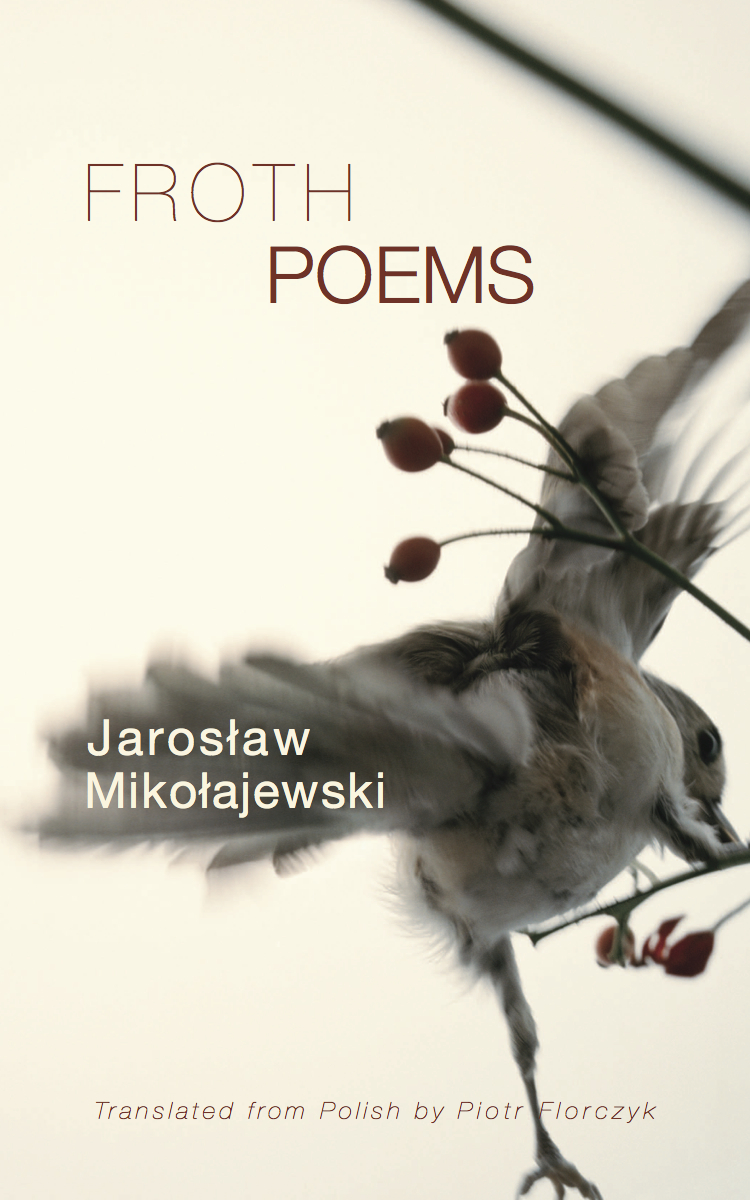 |
| via Calypso Editions |
"in fact I am for my daughtersSomething primal or instinctual was aroused by those words. It delved into religious themes while holding fast to the intimate connection to the earth. There was a greater sense of comfort within an expansive, yet contained cosmos. Like a breath desperately taken, it feels so freeing, but you feel the limitations of that capacity. It's this feeling of the sublime that lulls the reader into a waking dream. "między ziemią a nie (between the earth and not)" is the strongest example of this because the earth needs his body. The sense of toil and ultimate acquiescence to the earth has strong connections to folklore (see: Tolstoy's How Much Land Does A Man Need):
what an ox's breath
a lambs' laughter
a blast from a donkey's nostrils
were for jesus"
"her greedy breathThis continues in "kręgosłup mojej żony (my wife's spine)", which draws heavily on the idea of mother's giving life. It falls into a peasant dream, but there is the undercurrent of the banality of modern living.
is fanning my heels
my wife asks me
to calm the earth down"
Gone are the obvious terrors of yesteryear in his poems; there are no vile disruptions through an omnipotent, totalitarian system. The creeping, crawling terror of the every day slithers in its place. Daily living has its frustrations and slow erosion and this is keenly experienced in "wiersz urodzinowy na piętnastą rocznicę śmierci mojego taty (birthday poem for the fifteenth anniversary of my dad's death)". It pulls at the cross-hairs of banality and identity since he struggled with his choices since the day of his father's death. He questions himself about what he's doing as though he were watching his own past reel before his eyes. However, what struck this note hardest was "godzina próby (the hour of truth)". This poem really brought a new depth to the theme of peasantry and connections to the earth. The era of family farming battled the earth for a scrap of existence and struggled against the universe to pull life out of its jaws. The modern era, for many, does not require the sisyphean effort for life and it leaves a void; a void that requires us to battle the universe for significance. I loved this poem for capturing that struggle acutely. The description of the frustration in finding significance in minutiae--because the grand gesture never made an entrance--hits very close to home. The modern hero story is so crawlingly slow, it hardly qualifies as a story and grasps desperately for signs of grandeur and heroism as we have known it:
"but the more I taunt the hourThe namesake poem, "piana (froth)", delighted me for a sense of magical realism. It's one of my favorite literary genres, but it hardly gets mentioned here since the tradition is largely Latino. The stroke of almost macabre fantasy gives the collection more depth to its theme. The waking peasant dreams of a city boy turn something surreal into a non-event. It's loaded with meaning from earlier themes of struggles for significance in a banal world of every day choices, a connection to nature, and the tortured state of fatherhood. Failures in the quest for significance and the individual subsumed by the role of father wash down the drain, taking the stink of what doesn't belong and washing it away.
with a victorious challenge
the more I am
convinced
that the test has come already
it was so small that
I never dreamt of it
so light
it hasn't so far crushed my life"
The collection flows with motifs and themes, but never feels old and recycled. I did not feel like I read the same idea twice or even fell into a lull of boredom. There was a lull of familiarity, like a dream you barely remember, that envelops you in the internal world of Mikołajewski's words. It's his own universe, built on the subconscious of the one we live in.
